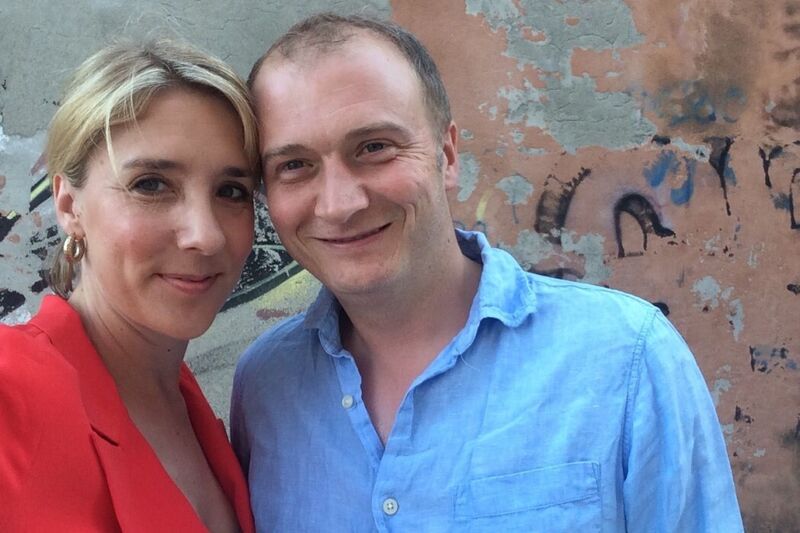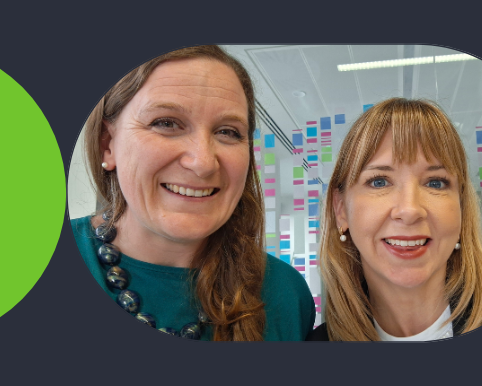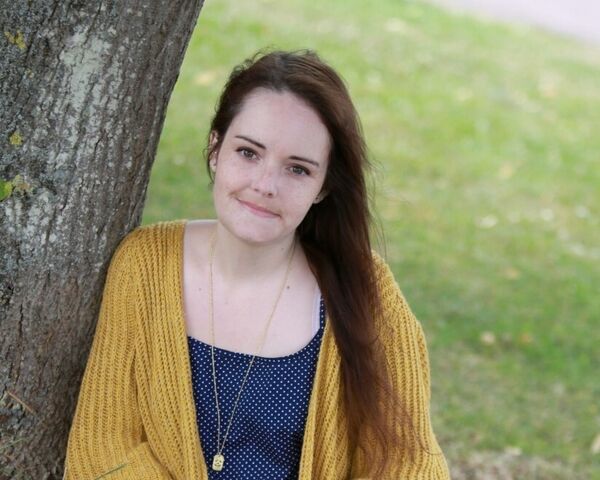From Downing Street to the world's largest sarcoma data library
By Zoe Conway on
Zoe Conway is the wife of Chris Martin, Principal Private Secretary to former Prime Minister David Cameron. Chris died of a rare sub-type of sarcoma in 2015.
When people ask me what Chris was like, I tell them about what he did at university. Whilst at Bristol, he joined the opera society: not to sing, not to be on stage, but to be the lighting director. I discovered an old leather Filofax he’d had as a student and in it I found an intricate drawing of where all the lights should go for one of the productions. Chris wanted to help other people to shine, and that’s what made him such a good civil servant.
So said Lord Jeremy Heywood, the then Cabinet Secretary, who invited me into his office for a cup of tea a few months after Chris died. I remember wondering why Lord Heywood had made time to see me – surely he had more important things to do, like running the government. In truth, he was desperate to talk about Chris, who he loved. Jeremy told me that Chris, who was the Director-General of 10 Downing Street, had always made sure that more junior civil servants got credit for their work and he said that this was unusual. I think that’s why, in an emotional tribute on the day Chris died, the then Prime Minister, the Rt Hon David Cameron, said that Chris had been somewhere between ‘a father and a brother’ to everyone at Number 10. I think that some of the emotion was also born of having watched up close Chris go through such gruelling treatment.
Chris had found a lump under his right arm in October 2013 and went to the doctor almost immediately. For the next four months his cancer was repeatedly misdiagnosed. At one point, he was told that he might only have weeks to live. Finally, it was decided that he had soft tissue sarcoma and he was prescribed nine rounds of chemotherapy. He worked the whole way through, sometimes taking a nap on a bed in Downing Street. As part of his treatment, he was put on steroids and his weight ballooned, he also lost his hair. For his colleagues around him, it must have been incredibly moving to see him determinedly soldiering on.
David Cameron also said that Chris would have gone to the ends of the earth for the government. I think Chris would have liked to feel that medicine was going to the ends of the earth for him. Instead, he often felt that he was being asked to join a queue to die. That’s not a criticism of the medical team who cared for him – he was looked after by some of the very best doctors in the country at University College Hospital. I think he felt that way because so little was understood about his cancer and there were so few good treatment options. There wasn’t much confidence that the chemotherapy he was given was doing any good. In fact, a few months later, the cancer came back.
What made diagnosing and treating Chris’s cancer so difficult is that he didn’t just have a rare cancer, he had a sub-type of a rare cancer. But that can’t be used an excuse for inaction. What’s needed is an ambitious project to gather genetic information about sarcoma so that treatments can be designed to fight it. Fortunately, that’s exactly what’s happening. A team being led by Professor Adrienne Flanagan at University College Hospital has collected the biggest data set of whole sarcoma genomes of anywhere in the world. It’s part of the 100,000 Genomes Project which was set up by David Cameron when he was Prime Minister.
I’m very proud to be able to say that £200,000 raised in Chris’s name has been donated to Sarcoma UK to fund this genetic research work. We have held a series of Westminster fundraisers that have been cross-party and have brought together civil servants, politicians, and journalists.
I’m pleased that in the last few days of his life, Chris came to know what he meant to so many people. There was a steady procession of friends and colleagues at the hospital. His work was recognised by the Queen who made him a Commander of the Royal Victorian Order. The medal was presented to him in his hospital room by the Queen’s Deputy Private Secretary.
Chris and I got married five days before he died. A doctor had warned us that he didn’t have much time left. I bolted out of the hospital room and made my way to Camden Council. Two registrars were by his bedside an hour later. The rings had been bought by his brother at the local Argos. It will forever be one of the most beautiful moments of my life.
Chris passed away on the morning of 25 November 2015 – two years after he found that first lump. He did not want to die. He had so much more to give the world. He made government better. He made me better. He was inspiring and I’m convinced that he will continue to inspire us all.


